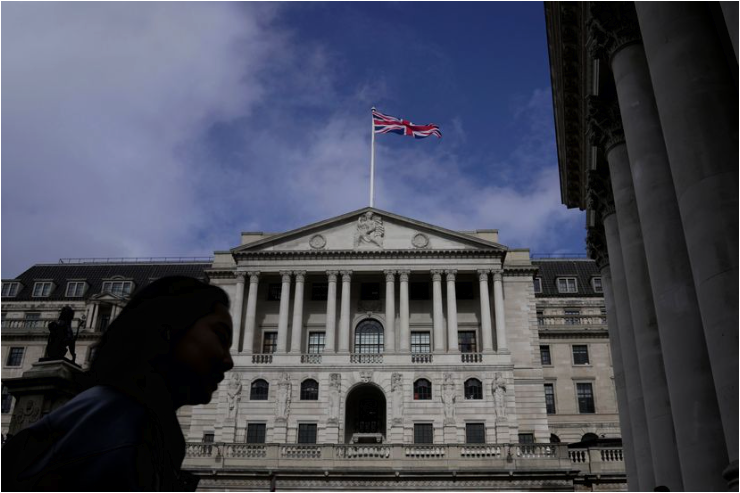Bank of England Hikes Rates to 4.5%
The Bank of England (BoE) raised the interest rate for the 12th consecutive time on Thursday, bumping it from 4.25 to 4.5%. It is now the highest it has been since October 2008, with the cumulative increase over recent months marking the largest such rise since the late 1980s.

Facts
- The Bank of England (BoE) raised the interest rate for the 12th consecutive time on Thursday, bumping it from 4.25 to 4.5%. It is now the highest it has been since October 2008, with the cumulative increase over recent months marking the largest such rise since the late 1980s.1
- This comes as the UK saw year-over-year inflation reach 10.1% in March — the highest figure among the G7. The Bank now projects inflation at the end of this year to be above 5%, compared with its forecast in February of under-4%.2
- Per expected consumer price data for April, however, inflation is expected to show a substantial decrease, following a decline in the surge in household energy bills. Energy costs surged 50% after the Russian invasion of Ukraine.3
- Despite publishing a pessimistic economic outlook three months ago, the BoE now foresees no quarters of economic contraction — news that could complicate its mission of bringing inflation down to 2% — as economic growth could allow inflation to persist for longer than initially predicted.1
- High interest rates traditionally hit homeowners hard, as, unlike in the US where buyers can subscribe to fixed rates for 30-year mortgages, the UK market offers much shorter periods of fixed rates for mortgages, after which homeowners must either switch to a lender’s usually higher variable rate or seek out alternate deals dependent on market conditions.4
- The BoE has stated that, if evidence does emerge of continued economic pressures, “further tightening" will be required. The comments come as both the US Federal Reserve and the European Central Bank (ECB) have hinted at pausing rate hikes. Despite this, ECB President Christine Lagarde has revealed the bank will continue to raise rates for the foreseeable future.3
Sources: 1Wall Street Journal, 2Guardian, 3New York Times, and 4Associated Press.
Narratives
- Establishment-critical narrative, as provided by Politico. The golden age of quantitative easing — and its unquestioned authority in the central banking world — is over. The Fed, BoE, and ECB all tried to keep inflation in check, but the efforts have failed to bring any significant relief to citizens while loan and energy costs have soared. After failing spectacularly on the global stage, Western central banks are continuing to double down on a failed policy.
- Pro-establishment narrative, as provided by Bank of England. Energy prices went through the roof due to the COVID pandemic and Russia's invasion of Ukraine, thus raising the cost of everyday goods and skyrocketing the cost of living. Though Britons, through no fault of their own, are still dealing with these economic developments, the BoE's monetary policy has so far proven successful and it will, unfortunately, continue to be necessary in the near future so that the country can bring inflation down to 2% by the end of next year.






